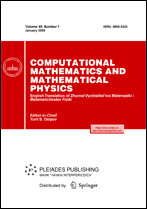|
This article is cited in 2 scientific papers (total in 2 papers)
Optimal control
Economic growth models with heterogeneous discounting
K. Yu. Borisovab, M. A. Pakhninab
a European University at Saint Petersburg, 191187, St. Petersburg, Russia
b Institute for Problems of Regional Economics, Russian Academy of Sciences, 190013, St. Petersburg, Russia
Abstract:
A survey of theoretical economic growth models with agents having different subjective discount factors is proposed. The structure of equilibrium paths in such models, their dynamics and convergence to stationary equilibria, and the relationship with Pareto optimal paths are described. Models with socially determined discount factors in which time preferences are formed endogenously are discussed, and the basic difficulties associated with social choice in the case of heterogeneous discount factors are examined. The models presented in the paper shed light on internal mechanisms of a market economy that lead to the division of society into the rich and the poor.
Key words:
economic growth, inequality, heterogeneous agents, discounting, voting, general equilibrium.
Received: 08.08.2022
Revised: 08.08.2022
Accepted: 17.11.2022
Citation:
K. Yu. Borisov, M. A. Pakhnin, “Economic growth models with heterogeneous discounting”, Zh. Vychisl. Mat. Mat. Fiz., 63:3 (2023), 355–379; Comput. Math. Math. Phys., 63:3 (2023), 337–359
Linking options:
https://www.mathnet.ru/eng/zvmmf11521 https://www.mathnet.ru/eng/zvmmf/v63/i3/p355
|


| Statistics & downloads: |
| Abstract page: | 139 |
|





 Contact us:
Contact us: Terms of Use
Terms of Use
 Registration to the website
Registration to the website Logotypes
Logotypes








 Citation in format
Citation in format 
